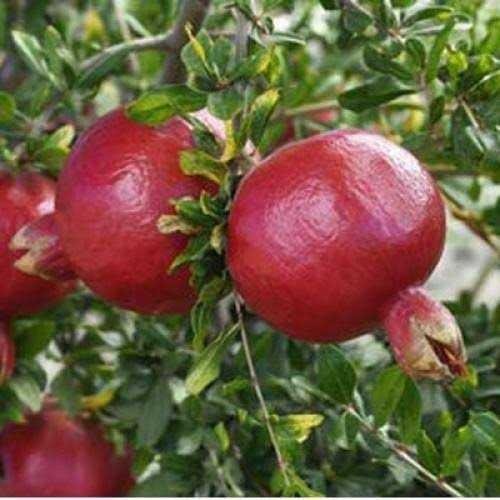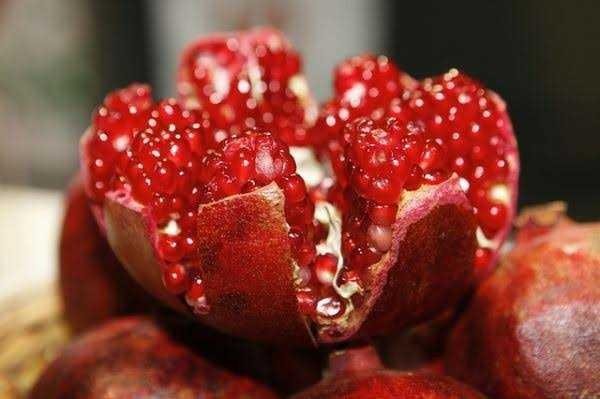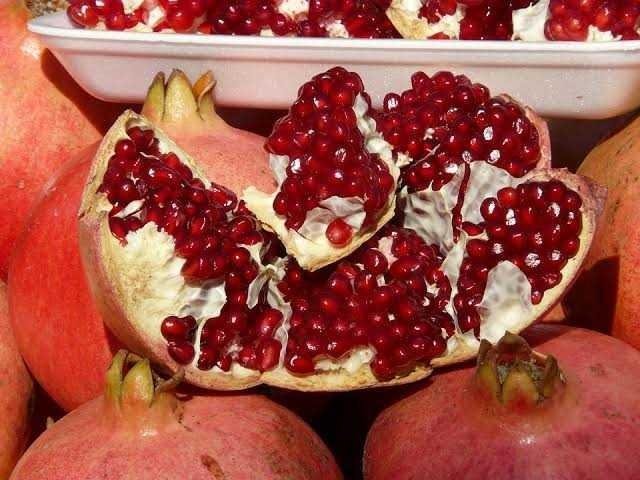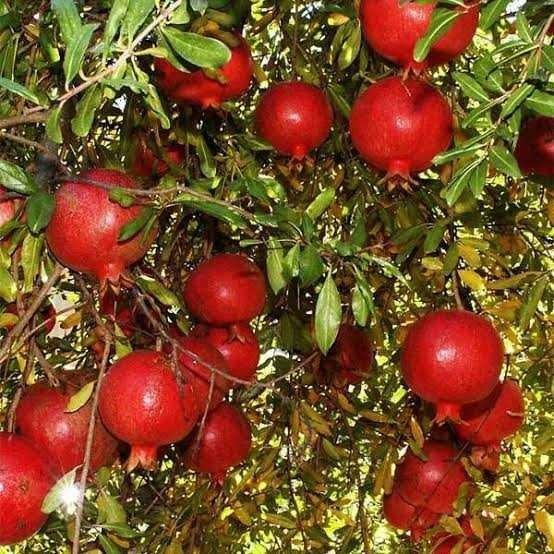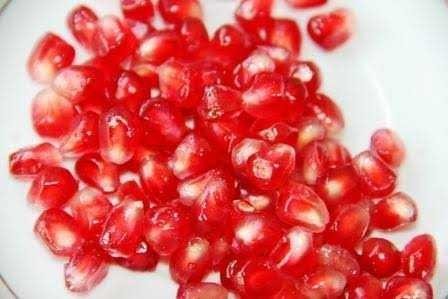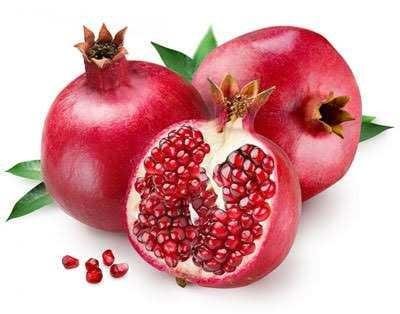
The Red Pomegranate is one of the healthiest fruits on earth that contains a variety of useful plant compounds, unmatched by any other food. Many studies have shown that they have tremendous benefits for your body, and can reduce the risk of all kinds of diseases.
Here are 5 Pomegranate Benefits for Fact-Based Health
1.Pomegranate is rich with essential nutrients
Pomegranate, or Punica granatum, is a bush that produces red fruit (1). Categorized as a berry, the size of the pomegranate is about 5-12 cm in diameter.
Pomegranate is red, round and looks like a red apple with a flower-shaped stem. The pomegranate skin itself is thick, and there are hundreds of small seeds called arils. Arils is what we eat, whether raw or processed into pomegranate juice.
1 cup arils (174 grams) containing (2):
Fiber: 7 grams.
Protein: 3 grams.
Vitamin C: 30% of RDA.
Vitamin K: 36% of RDA.
Folate: 16% of RDA.
Potassium: 12% of RDA.
Sugar: 24 grams
Calories: 144
The taste of the arils seeds in the pomegranate is also very sweet.
The point: Pomegranates are fruits that contain hundreds of grains called arils and are rich in fiber, multi-vitamins, minerals, bioactive plant compounds, but also sugar.
2.Pomegranate Contains Two Strong Compounds that are medicinal
There are two unique substances in pomegranates that are beneficial to health.
Punicalagin
Punicalagin is a very powerful antioxidant found in juice and pomegranate skin. These antioxidants are so powerful that pomegranate juice has been found to have three times the antioxidant activity of red wine and green tea (3).
Pomegranate extracts and powders are usually made of leather, due to its high antioxidants and containing punicalagin.
Punicic Acid
Punicic acid, also known as pomegranate seed oil, is a major fatty acid in arils. It is a conjugated linoleic acid with a potent biological effect.
The point: Pomegranates contain punicalagins and punicic acid, a unique substance that is responsible for most of their health benefits.
3.Pomegranates Have good prevent Inflammatory Effects
Chronic inflammation is one of the main triggers of many deadly diseases. These include heart disease, cancer, type 2 diabetes, Alzheimer's disease and even obesity.
Pomegranates have strong anti-inflammatory properties, most of which are mediated by antioxidant properties of punicalagin.
Case studies show that punicalagin can reduce inflammation (inflammation) in the digestive tract, even breast cancer and colon cancer cells (4, 5, 6).
One case study in diabetics found that 250 ml of pomegranate juice per day for 12 weeks decreased the causes of CRP and interleukin-6 inflammation by 32% and 30% (7), respectively.
The point: The punicalagin in pomegranate juice has been shown to reduce inflammation, which is one of the main triggers of many deadly diseases.
4.Pomegranate Can Help Against Prostate Cancer
Prostate cancer is the most common type of cancer in men. Laboratory studies prove that pomegranate extracts can slow the reproduction of cancer cells, and even induce apoptosis (cell death) in cancer cells (8, 9).
PSA (prostate specific antigen) is a marker of prostate cancer. If you have a PSA level that increases in a short time will increase the risk of death from prostate cancer.
Interestingly, a case study found that 237 ml (8 oz) of pomegranate juice per day, can prolong the PSA twice from 15 months to 54 months, very remarkable not (10). An advanced study found similar improvements using a type of pomegranate extract called POMx (11).
The point: Proven early that pomegranate juice can be useful in men with prostate cancer, potentially inhibits cancer growth and reduce the risk of death.
5.Pomegranate Also useful against Breast Cancer
Breast cancer is the most common type of cancer in women. Pomegranate extract has been shown to inhibit the reproduction of breast cancer cells, and may even kill some of them (12, 13, 14).
However, this is currently limited to laboratory research, and further research is needed.
The point: Laboratory studies have shown that pomegranate extracts can help fight breast cancer cells, but human studies are needed to confirm this.
**My Reference**
**
